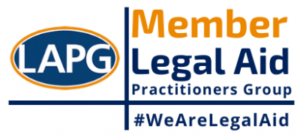In a landmark judgment, a majority of the Supreme Court has held that the current law on abortion in Northern Ireland breaches Article 8 of the European Convention on Human Rights (ECHR) by failing to provide exceptions to the prohibition on abortion in cases where the foetus will not survive birth and where the pregnancy is the result of rape or incest.
The case was brought by the Northern Ireland Human Rights Commission. The appeal was heard in the week of the 50th anniversary of the Abortion Act 1967, which enabled access to abortion in a wide variety of circumstances in England, Scotland, and Wales, but was excluded from applying in Northern Ireland.
In five separate judgments, a majority of the Supreme Court found that the abortion regime in Northern Ireland breaches women’s rights to privacy and bodily autonomy – protected under Article 8 ECHR – in cases of fatal foetal abnormality pregnancies, or where the pregnancy is a result of rape or incest. The law does not achieve what it purports to in any event, as Northern Ireland “merely outsources the issue, by imposing on the great majority of women within the categories in issue in this appeal the considerable stress and the costs of travelling abroad, away from their familiar home environment and local care” Two of the judges (Lord Kerr and Lord Wilson) held that the prohibition on abortion in those categories subjects women to inhuman or degrading treatment, contrary to Article 3 ECHR.
Although the Court stopped short of making a formal declaration that Northern Ireland law is incompatible with human rights because the NIHRC did not have standing to bring the proceedings, it nevertheless chose to state its “positive conclusion of incompatibility” and underlined the need for review and reform noting that following the decisive referendum in the Republic of Ireland Northern Ireland now stands “almost alone [in Europe] in the strictness of its current law”.
Lord Mance said: “the present legislative position in Northern Ireland is untenable and intrinsically disproportionate… the present law clearly needs radical reconsideration. Those responsible for ensuring the compatibility of Northern Ireland law with the Convention rights will no doubt recognise and take account of these conclusions, at as early a time as possible, by considering whether and how to amend the law, in the light of the ongoing suffering being caused by it.”
The judgment follows a powerful report from the Committee on the Elimination of Discrimination against Women (CEDAW) in February 2018 that the current restrictions on accessing abortion services in Northern Ireland constitute ‘grave’ and ‘systemic’ violations of women’s rights.
Janet Farrell, solicitor at Bhatt Murphy representing Humanists UK, commented,
“This landmark case from the UK’s most senior court confirms what women in Northern Ireland know only too well – that the current law on abortion in Northern Ireland simply does not afford women the dignity or personal autonomy demanded by human rights law. As Lord Mance put it the present law treats the pregnant woman as a “vehicle” who must continue her pregnancy “whatever the other circumstances and whatever her wishes”. It is up to law-makers now to review and radically reconsider the law as the Supreme Court expects and the women of Northern Ireland deserve.”
Human rights issues are not a devolved matter and they are thus the concern for the UK Government, not just the Northern Ireland Assembly, which has not been functioning since January 2017. The UK Government now needs to act to protect the rights of women in Northern Ireland.
Humanists UK intervened by written and oral submissions as well as by filing evidence from three eminent philosophers and Humanists UK supporters: Professor A.C. Grayling, Professor John Harris and Professor Simon Blackburn.
Janet Farrell acts with Caoilfhionn Gallagher QC, Fiona Murphy and Mary-Rachel McCabe of Doughty Street Chambers.
The Supreme Court’s judgment can be read here.
Humanists UK press release can be read here.
Janet and Mary-Rachel’s blog for Justice Gap on the significance of the judgment can be found here.




